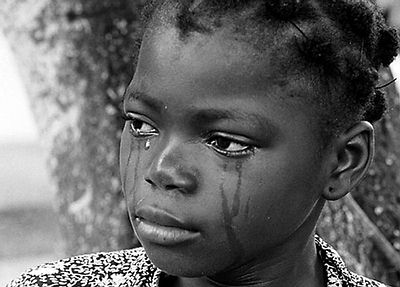
http://t.co/nOfQSM0
Catherine Sasman
Government has ratified the UN Convention Against Transnational Organised Crime, and the additional Protocol to Prevent, Suppress and Punish Trafficking in Humans, especially women and children, in 2003.
But because the country does not have specific legal provisions that criminalise human trafficking, there are no official reports of people being trafficked, from or within the country.
As a result, said Director of Gender Equity in the Ministry of Gender Equality and Child Welfare, Victor Shipoh, Namibia was categorised as a 'special case' for not having enough reliable information on human trafficking by the US Department of State 2008 Trafficking in Persons (TIP) report.
Notwithstanding, a baseline study conducted by the gender ministry in seven regions those serving as entry and exit points in 2009, illustrated "possible" trafficking cases.
Some of these possible cases included seven Congolese nationals found hidden in a truck from Windhoek to South Africa via Botswana; illegal Chinese female immigrants found in Walvis Bay; as well as 800 illegal Chinese immigrants found at the Ramatex textile complex in Windhoek.
A global baseline study in 150 countries found that female offenders play a more prominent role in trafficking, although acknowledgement is given to the fact that it is a male-dominated area.
Female victims constituted between 65 to 75 per cent, while about 15 to 25 per cent were child victims. About 15 per cent of the victims were male.
Victims for sexual trafficking for sexual exploitation accounted for 79 per cent, but, said advocate Johan Kruger of the southern African regional UN Office on Drugs and Crime (UNODC), labour exploitation that currently constitutes 18 per cent, is on the rise.
Under the UN convention the key obligations to State parties are to criminalise participation in an organised criminal group, to deal with laundering of proceeds of crime, and to address public sector corruption and obstruction of justice.
The purpose of the protocol, which Kruger said should be used in tandem with the UN convention, is to prevent and combat human trafficking, protect and assist victims with full respect for human rights, and promote cooperation between State parties.
Kruger however noted that transport and movement are key elements of human trafficking, but that it is manifested in an axis of the actual act, means, and purpose of violations, which are key to affect investigations and prosecutions.
Notwithstanding, said Kruger, due to the transnational nature of the crime, SADC States should align their legislation and across-sectoral approaches to arrest human trafficking.
No comments:
Post a Comment